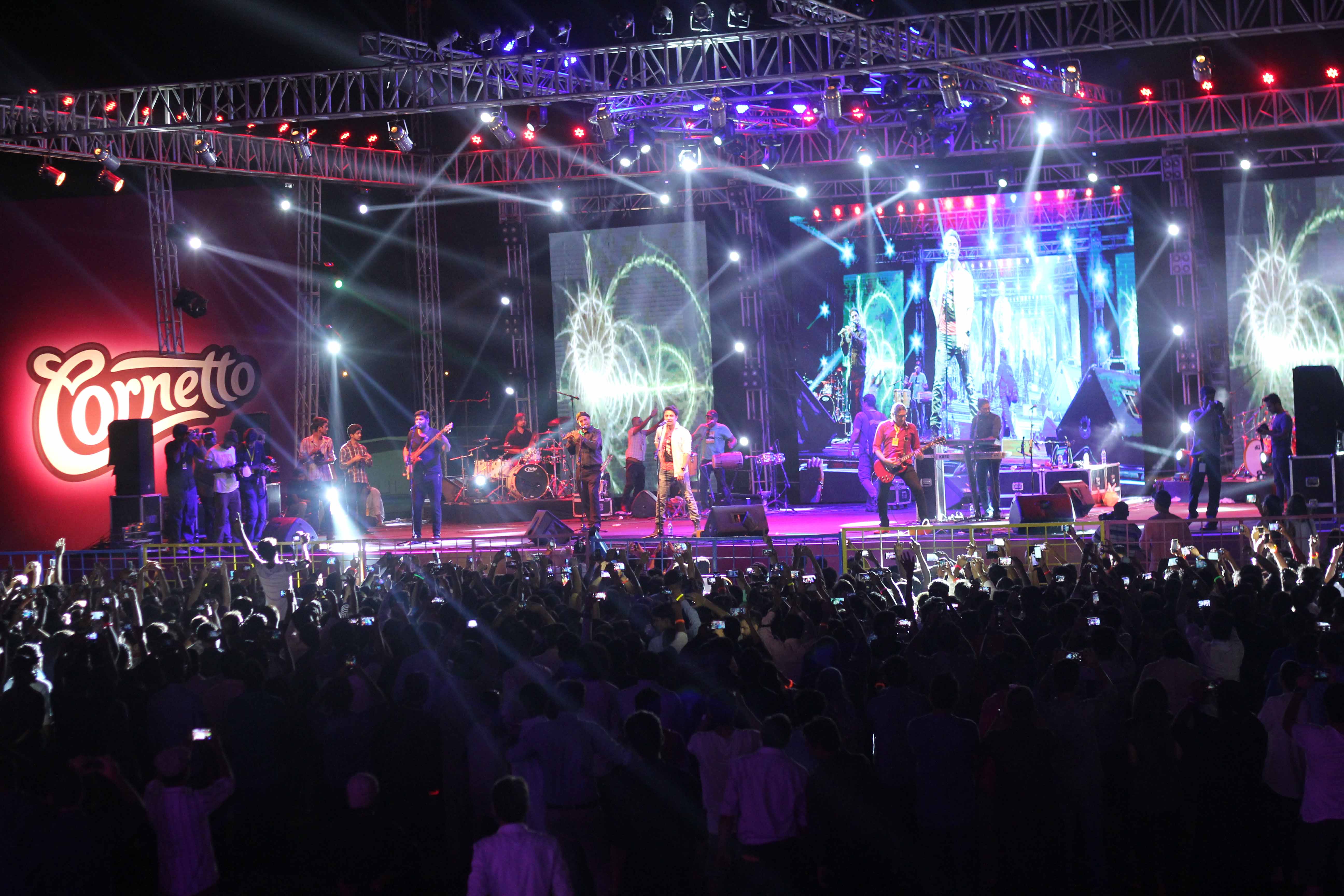
It was as if the old guard of the Pakistani rock scene was tasked with reviving the dissipating pulse of the pop rock culture that once thrived amongst the youth of the country. Together, they revved their guitars, poured their hearts out and delivered with verve, aplomb and a flood of emotions a track that sent shockwaves all across the nation. We wonder what flavour exactly of Cornetto Noori and Ali Azmat had to expend the energy that they did in Dildara.
Perhaps they concocted a clever mix; much like Qurram Hussain and Komal Rizvi who blended a classic desi tune with hip hop, and transformed Naseem Begum’s Desan Da Raja into a funky, free-spirited number as they danced through old Karachi, making a generation that would otherwise write-off such a song as boring, dance with them.
Sweet as a nut-ty ice cream cone! Whether the likes of QB, Zoe Viccaji and Umair Jaswal were having Cornettos to fuel their energies or not is an assumption that requires careful investigation; nevertheless, they were present on the same platform because of it. While we were congratulating the film industry on its revival, there was another ‘revivalution’, for want of a better word, taking place not far from it. Our music scene was shuddering to life with a series of concerts and the release of six music videos, one after another, as part of the first season of Cornetto Pop Rock, a platform that wasn’t just reviving the concert culture but also revolutionizing it by actively auditioning university and college students in Karachi, Lahore and Islamabad for a shot at opening the respective concert of their city.
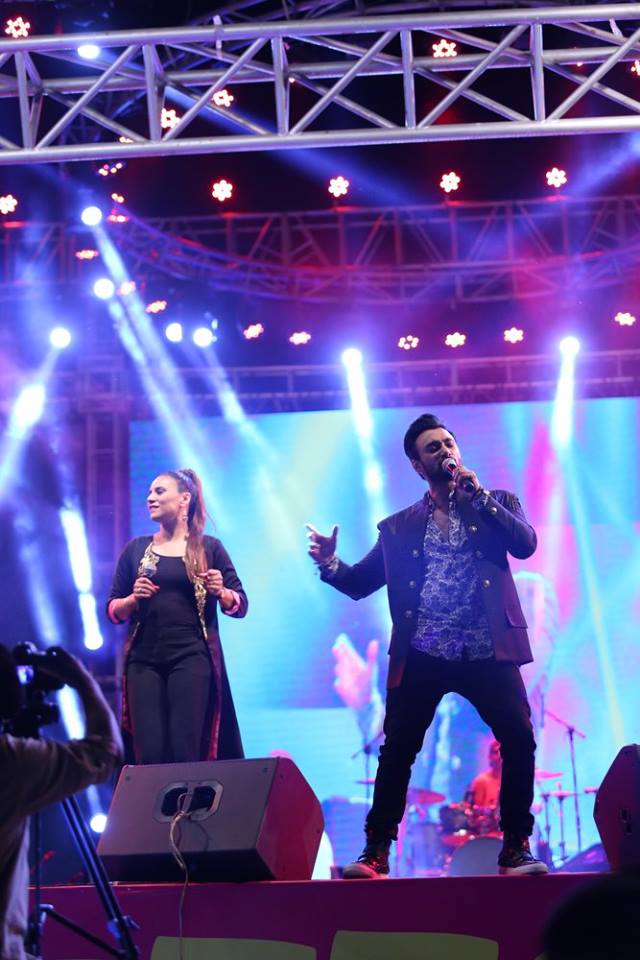 Zoe and Umair Performing Jhoom at Cornetto-Pop Rock Concert, Rock Musicarium, Islamabad
Zoe and Umair Performing Jhoom at Cornetto-Pop Rock Concert, Rock Musicarium, IslamabadThere was more to the platform that set it apart from the rest than just the music videos, concerts and auditions. While it is too tempting to delve into talking about the direction of the videos and the songs, it would be a pity to give the concept a miss. The first season of the platform was announced in March this year in Karachi, with a view to revive the pop rock culture among the youth. The first season was divided into three stages, the first encouraged youngsters from universities and colleges to audition and subsequently earn the chance to open the live concert of their city (the concerts being the second stage), while the third involved the release of six music videos from the likes of QB, Noori, Umair Jaswal, Zoe Viccaji, Komal Rizvi, Ali Azmat and Qurram Hussain.

Since the target audience of Cornetto Pop Rock was mainly young adults, every element from the concept of the videos, lyrics and the music itself had a refreshing, energetic feel to it that easily sets the platform apart from what has developed into the typical music status quo. Despite the incorporation of elements from western music, the producers still managed to preserve aspects that made Cornetto Pop Rock quintessentially Pakistani. Therein lies the reason for the platform’s success in its inaugural season. The involvement of a brand with film, television or music is usually part of a wider marketing strategy; in this case however, a substantial part of the initiative gave back to not just the music industry but also to society. As the rock maestro Ali Noor put it,
“The platform has a lot to offer to the music industry and certainly has a bright future. One thing that I appreciated throughout the campaign was the level autonomy that we had while working on the songs, which allowed us to apply our ideas and concepts. While on the other hand there was a lot that we learned during the process. It would be encouraging for musicians if brands continued taking such initiatives.”
 Ali Azmat and Noori Performing live at Cornetto Pop-Rock Concert at Rock Musicarium, Islamabad
Ali Azmat and Noori Performing live at Cornetto Pop-Rock Concert at Rock Musicarium, IslamabadThat “level of autonomy” perhaps suggests that the artists were given a carte blanche, as opposed to the pressure of producing music that is solely meant for promoting the brand itself; encouraging indeed for musicians. If anything, during a period when the ambition for Pakistani singers mostly seemed to be to feature in Bollywood on the back of a hit single, musicians working with a brand and producing music in Pakistan for the Pakistani audience is bound to encourage others to follow the same path.
Where the auditions in universities and colleges boosted the youth’s interest and participation with local music, the concerts brought stars as big as Ali Zafar, Q, Ali Azmat and Noori, amongst others, out of television sets and into public venues for the pleasure and surprise of thousands of young boys and girls. Numbers at the concert and the feedback that the artistes got ensured that the arena is still very much open to the revival of the concert culture that was alive a couple of decades ago. On the other hand, it should also encourage more such initiatives. Having gathered such massive crowds it would be a shame to not do this on a regular basis, given how diverse and vibrant our music can be.
If not speaking of the concept was a pity, then not getting a word in on the songs would be a sin. To put it mildly, the effort on the whole was an amalgam of creative geniuses proving just what they are capable of once they put their heads together; which is something the number of hits on Cornetto Pakistan’s Youtube channel can readily verify. Whether it was Amaan Ahmed’s direction, wardrobes from the most sought-after Pakistani designers or the pulsating guitar riffs; it all hit just the right note. As said before, where western elements make the music exciting, the challenge was keeping Pakistani originality alive. Take Desan Da Raja for instance: a wedding number that emulates a techno vibe as soon as Q enters the fray. And then there was no lack whatsoever of sheer power. Be it
Be it Dildara, the trippy Pyar Wyar or Ali Azmat’s POV Mein, which backed by acoustics, carried the emotion oh-so-sublimely-well.
Speaking of emotion, it is hard to forget the gushing nostalgia that one gets from Jhoom and Yeh Zindagi. Both songs, though so different in nature, give way to a similar set of emotions.
There’s an indie feel to Jhoom that is perfectly in sync with what the song emotes; hope and ambition.
The challenge now for the producers is to persist with resisting monotony and targeting experimentation. One can only hope that in their song Dildara for Cornetto Pop Rock Season 1, Ali Noor and Ali Azmat meant it when they said Mera tumhara, chalta rahega, safar yeh humara!




















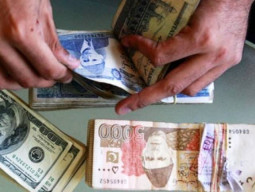










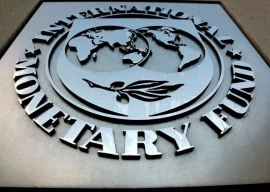


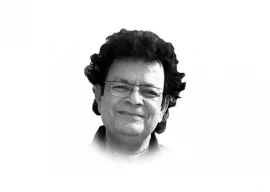



COMMENTS
Comments are moderated and generally will be posted if they are on-topic and not abusive.
For more information, please see our Comments FAQ